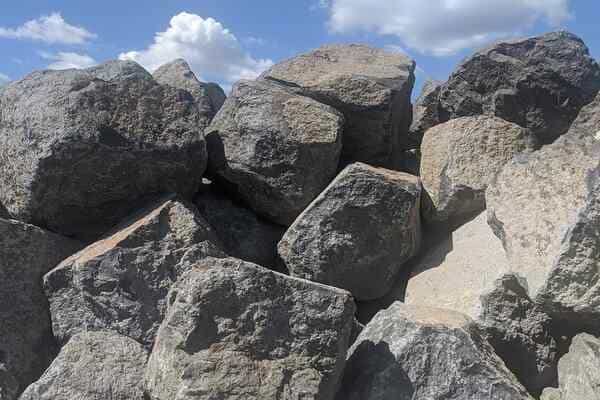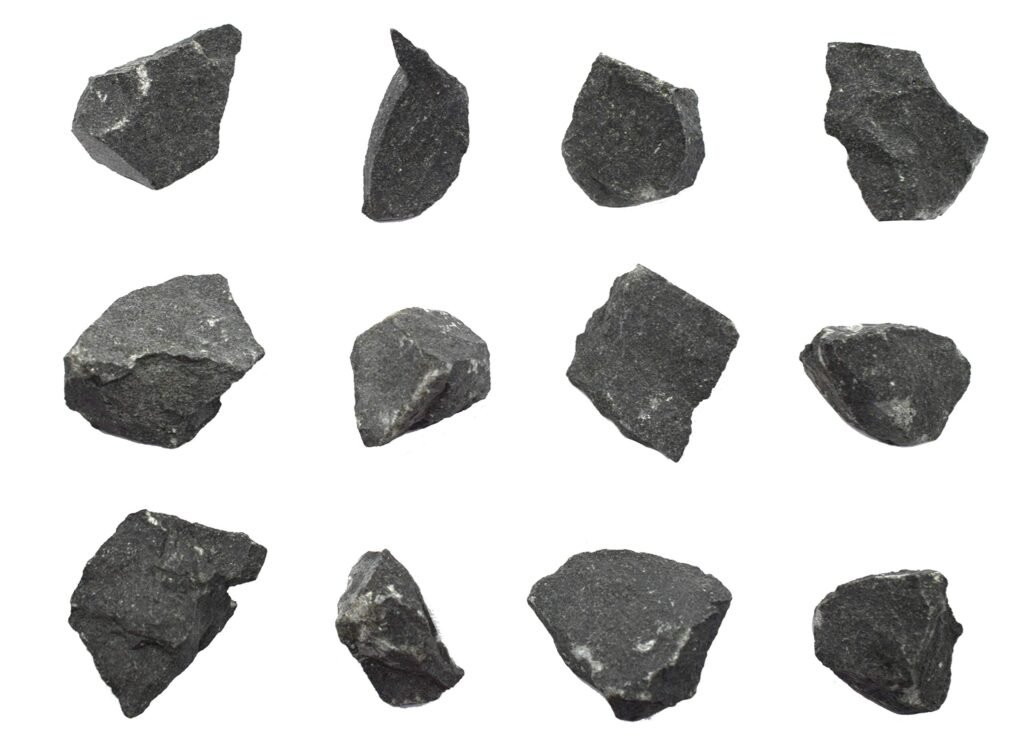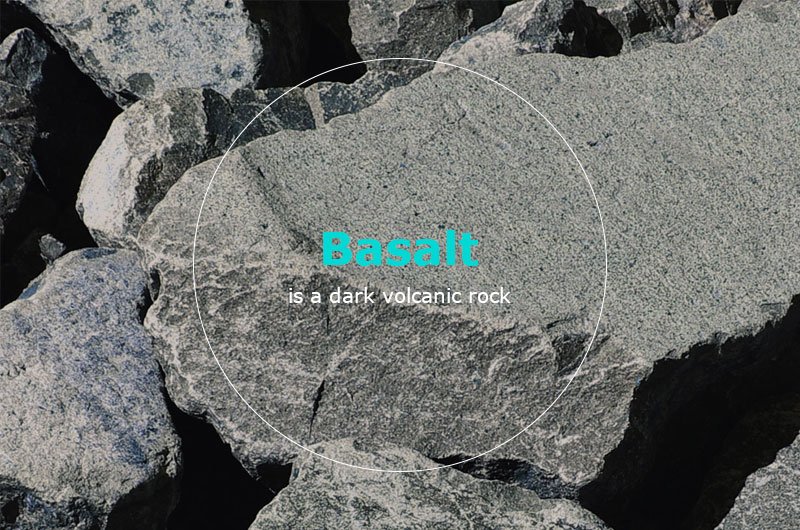Basalt rock is a hard, dense volcanic rock. It is widely used in construction, landscaping, road building, and industrial applications. In India, basalt is common in states like Maharashtra, Karnataka, Madhya Pradesh, and Gujarat. Here’s a full guide on basalt rock price in India, types, uses, applications in civil engineering, and buying tips—designed for builders, students, and bulk buyers.
1. What Is Basalt Rock?

Basalt is a dark-colored igneous rock. It forms when lava cools quickly at the earth’s surface. It is strong, durable and highly resistant to weather and stress. In civil engineering, crushed basalt is also called trap rock. It is commonly used for roads, pavements, railway ballast, and concrete.
2. Basalt Rock Price in India
Basalt pricing varies by form, size, finish, and region:
| Product Type | Price Range (₹ per sq. ft or ton) |
|---|---|
| Polished Basalt Slabs (flooring) | ₹ 65–160 / sq. ft |
| Basalt Cladding, Tiles | ₹ 50–350 / sq. ft |
| Basalt Mushroom / decorative tile | ₹ 80–150 / sq. ft |
| Basalt Aggregates / crushed rock | ₹ 4,000–5,500 per tonne |
| Landscaping slabs, cobbles | ₹ 750–2,300 per m² |
Note: The Indian price mostly uses ₹ per square foot for slabs and tiles. Aggregates are quoted per tonne. Local transport, GST, and size affect final price.
Also Read What Is the Main Purpose of Using Stirrups During Construction?
3. Major Varieties & Finishes of Basalt Rock

Basalt is sold in various forms in Indian markets:
- Polished Basalt Slabs: Smooth, glossy finish for flooring or countertops. Price ₹ 65–160 / sq. ft.
- Flamed or Bush-Hammered Basalt: Textured surface for exterior paving and anti-skid areas. ₹ 38–100 / sq. ft.
- Cobblestones and Mushrooms: For landscaping, garden features, pathways. ₹ 80–150 / sq. ft.
- Basalt Aggregates: Crushed rock used in concrete, base layers, and ballast. Quoted ~ ₹ 4,000–5,500 per tonne.
4. Uses of Basalt Rock in Construction
Road and Pavement Construction
Basalt aggregate is ideal for road sub-base and surface layers. It resists water damage, frost, and heavy loads. It is often used in bituminous roads and highways.
Railways and Ballast
Crushed basalt or trap rock is used as railway ballast due to its hardness and long-lasting strength.
Buildings and Flooring
Basalt slabs are used in public buildings, commercial spaces, and residential flooring. It is highly resistant to abrasion, moisture, and heat.
Landscape and Outdoor Use
Basalt is popular in garden pathways, steps, retaining walls, fountains, and hardscape environments. Cobblestone and mushroom finishes add visual appeal.
Industrial and Technical Applications
Basalt fiber is used in high-strength composites and thermal insulation. Crushed basalt powder is used in filtration media and road base.
5. Basalt Rock Market Overview & Growth
- The global basalt market was valued at around USD 3.4 billion in 2024, and is expected to reach USD 6.8 billion by 2033, growing at a CAGR of 7.2%.
- In India, demand for basalt aggregate and basalt stone slabs is rising with road development, smart city projects, and real estate construction.
- Basalt fiber technology is gaining attention in India due to its lightweight and high-strength properties.
6. Price Factors (What Affects Basalt Cost)
- Finish and Thickness: Polished vs flamed vs rough affects the cost.
- Type (Slab, Tile, Aggregate): Decorative stone costs more than aggregate.
- Size and Cut Quality: Larger slabs or custom cuts are expensive.
- Quarry Location: Distance to site affects transport costs.
- Transportation & Handling Charges: Freight and taxes are major variables.
- Order Volume: Larger orders often have better per-unit pricing.
7. Price Range Comparison Table
| Product | Approx Price (₹) | Units | Notes |
| Polished basalt slab | ₹65–160 | ₹ / sq. ft | Used for flooring, interiors |
| Flamed / bush-hammered | ₹38–100 | ₹ / sq. ft | Used in outdoor and footpaths |
| Decorative basalt tiles | ₹80–150 | ₹ / sq. ft | Landscaping and wall cladding |
| Basalt aggregates | ₹4,000–5,500 | ₹ / tonne | For concrete, road sub-base |
8. Buying Tips for Indian Customers
- Request sample pieces before bulk purchase to check quality.
- Verify water absorption and compressive strength (should be high).
- Ensure supplier authenticity and GST registration.
- Check minimum order quantity (MOQ)—usually 500–1,500 sq. ft or 2–3 tonnes.
- Negotiate transport and installation charges based on location.
- Compare local and imported basalt options before finalizing.
9. FAQs about Basalt Rock in India
Q1: What is the average price per square foot of basalt flooring in India?
Typically ₹ 65–160 per sq. ft depending on finish and thickness.
Q2: How much does crushed basalt cost per tonne?
Approximately ₹ 4,000–5,500 per tonne depending on quality and location.
Q3: Is basalt rock suitable for wet areas like bathrooms?
Yes. Basalt has low water absorption and good slip resistance, making it ideal for humid and wet areas.
Q4: Can basalt rock replace granite or marble in outdoor landscaping?
Yes. Basalt is cost-effective, durable, and weather-resistant. It is widely used in landscaping.
Q5: What is basalt fiber and where is it used?
Basalt fiber is a high-strength material made from molten basalt. It is used in automotive parts, pipes, sports equipment, and structural reinforcement.
10. Conclusion
Basalt rock offers strength, durability, and versatility. In India, it is widely used for flooring, paving, crushed stone aggregates, and landscape design. Prices vary by product form and finish—from ₹ 65/sq. ft for polished tiles to ₹ 4,000–5,500 per tonne for crushed basalt.
With growing infrastructure needs and focus on eco-friendly construction materials, basalt is becoming a preferred choice among Indian builders and engineers. Always compare quotes, request samples, and ensure compliance with IS codes before purchasing.
Whether you are a builder, architect, contractor, or student, basalt is a practical and sustainable choice for modern construction.










